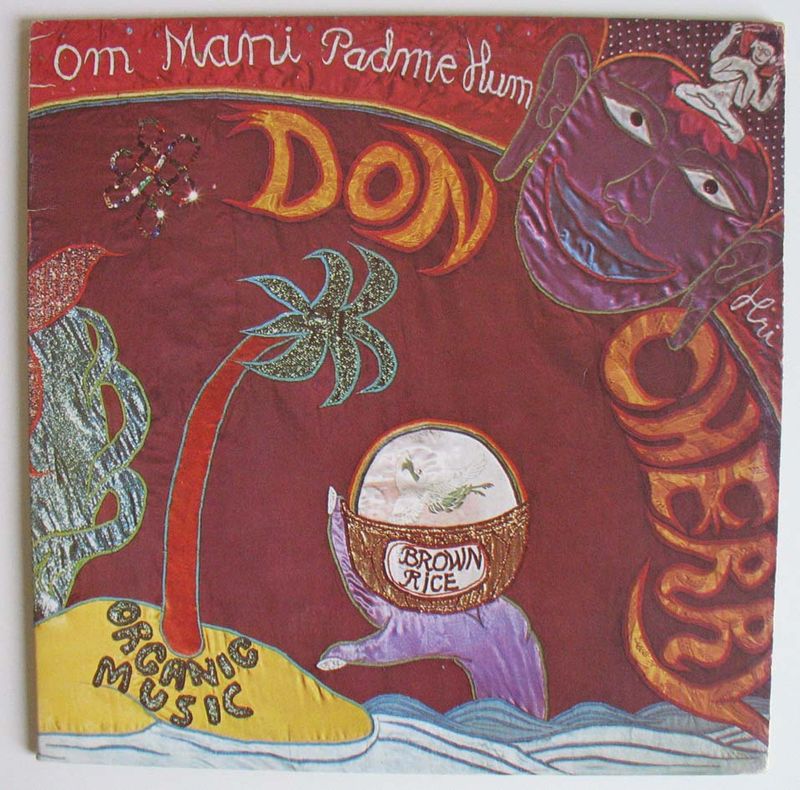Don Cherry – Brown Rice


One of the most accessible fusion jazz records is also Don Cherry’s best album. Brown Rice is one of those School of Rock required listening samples for anyone breaking into fusion for the first time (and jazz in general since fusion is a bit of a gateway itself) Brown Rice is relatively short, at just over 39 minutes and only four tracks, but Cherry never feels restricted, letting his trumpet solos breathe while his backing band carries the atmosphere. On “Chenrezig” Hakim Jamil’s slithering bass makes the song menacing right up until Cherry’s trumpet catches on and on the last track here “Degi- Degi” the progression is so frenzied and unsettling it leaves the listener to find solace only in Cherry’s brief solo. The way he surrounds and constructs these pieces is really what makes this record stand out from the rest, as more than just an eclectic selection of songs, even for Don Cherry. “Brown Rice” features some Damo Suzuki-esque scatting and a Tikki Tikki Tembo name drop, while “Malkauns” plays over a quiet Indian tambura, an instrument that surprisingly, would become somewhat popular in the 70’s jazz-fusion scene. That tambura is played by Don’s wife Monika “Moki” Cherry and together they would start a large family including Moki’s daughter from a previous marriage, Neneh Cherry and the stellar one hit wonder Eagle-Eye Cherry. Even without the lineage though, Don Cherry stands out as more than just a patriarch. It’s through his ingenious assembly of musicians and his specific but transcendent individual contributions that leaves this album as a classic of a very specific period in jazz history.
~9.0
Comments
Post a Comment